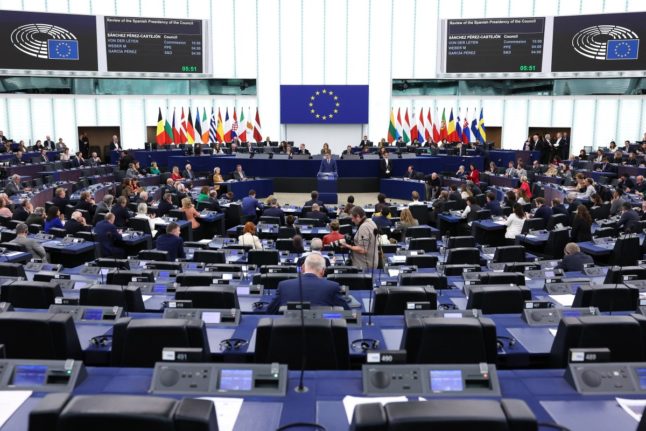According to a draft law seen by the daily Süddeutsche Zeitung, all those involved in employing foreigners without the right papers would become liable to pay extradition costs – which can amount to several thousand Euros.
Those convicted of employing illegal workers would no longer be allowed to give work to foreigners at all, the paper reported on Saturday.
Yet those foreigners who have been exploited would find it easier to sue employers for their rightful wages – and would be allowed to remain in Germany in order to do so.
The draft law drawn up by the interior ministry would also impose lengthy prison sentences on those convicted of illegally employing foreign minors as well as those guilty of human trafficking.
And it would introduce the European Union ‘Blue Card’ for the employment of experts from outside the region.
This would allow academics and experts who have at least five years of experience to enter, with their families, if they have a work contract or a binding job offer – if they earn at least 1.5 times the average wage. This would amount to around €42,000 in Germany.
People working in areas where new workers are particularly needed would only have to earn 1.2 times the average wage.
The European Union left it open to member states to decide how long these experts would be allowed to stay – between one and four years. The interior ministry draft envisions the German version to be valid for two years, according to the Süddeutsche Zeitung.
Yet it would seem that at least this part of the new rules could be altered before the law is passed.
“There is still space upwards with the Blue Card,” said Hartfrid Wolff, interior policy expert for the Free Democrat Party (FDP), referring to the two-year limit currently being proposed.
The draft law would also largely spare minors from extradition procedures – they would be held in custody with their families. This latter measure was criticised by the refugee association Pro Asyl which called for such families only to be held in the most extreme cases.
The Local/hc





 Please whitelist us to continue reading.
Please whitelist us to continue reading.
Member comments